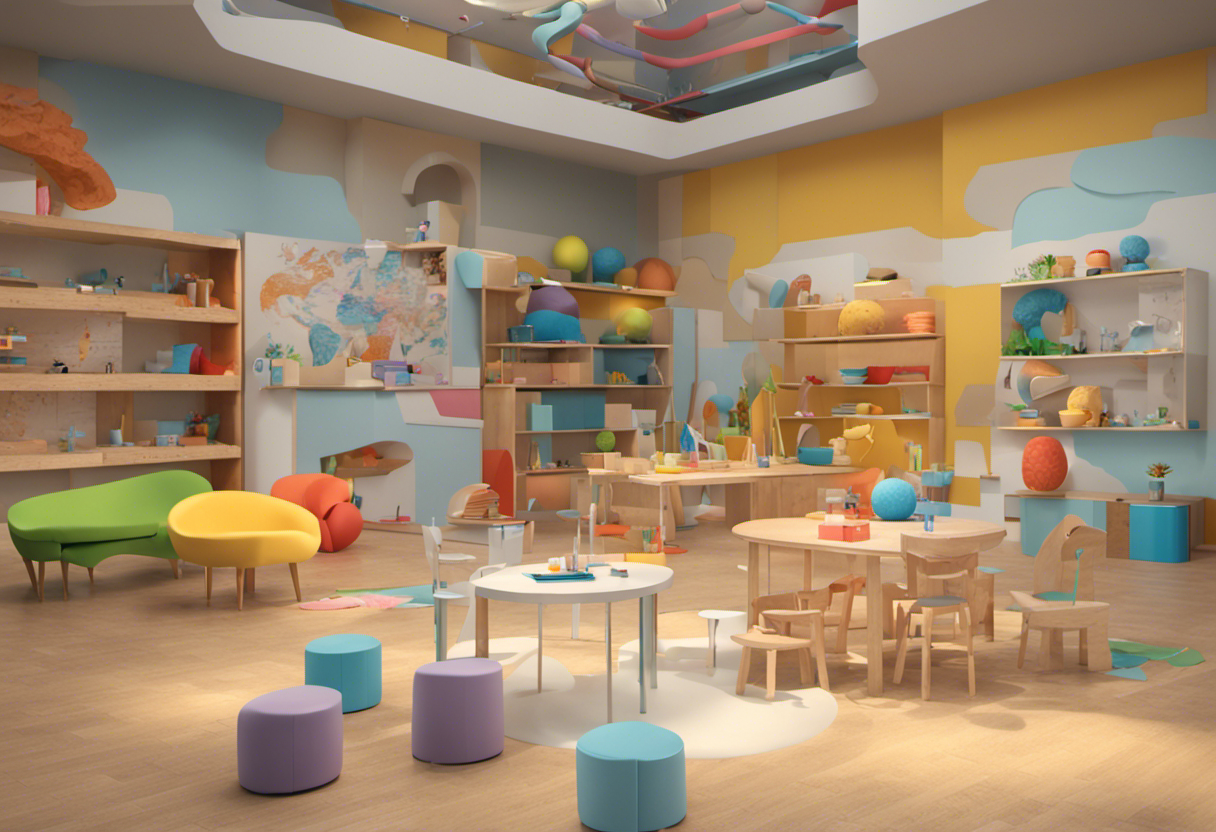Unlocking Potential: Nurturing Memory Development in Early Childhood

Have you ever wondered just how crucial the role of memory is in a child’s early years? The young human brain, a symphony of synapses firing at an awe-inspiring pace, becomes a rich tapestry of critical life experiences interwoven with memories that form the bedrock of their cognitive and socio-emotional development.
We are on an exciting journey to explore the intriguing and complex landscape of memory development during early childhood in this article titled “Unlocking Potential: Nurturing Memory Development in Early Childhood.” Not only will we delve into the multifaceted stages of memory maturation from infancy through preschool, but we will also peek beneath the surface at the unique physiology that underpins this evolution.
Furthermore, it is key for caregivers and educators to understand the factors influencing memory development and its typical or atypical trajectory. Practical strategies and measures educational institutions can employ to support memory development will also be discussed, providing actionable insights for those involved in a child’s developmental journey.
Finally, we will shed light on cases dealing with memory developmental disorders during these formidable years to bring theory into a real-world context. This comprehensive guide illustrates the immense potential held within a child’s developing memory and how proper nurturing can unlock it. After all, our early memories shape who we are, don’t they?
Understanding Early Childhood Memory Development
In our exploration of early childhood memory development, it is crucial to comprehend its significance, stages, and the essential link between memory and a child’s overall development. In doing so, we will have a stronger appreciation of memory’s crucial role in children’s cognitive growth.
The Importance of Memory in Early Childhood
Memory has far-reaching implications on a child’s progression. It not only aids in information retention but is also instrumental in shaping their thought processes and emotional responses.
How Memory Contributes to Cognitive Development
A strong memory system fuels cognitive growth by enabling children to retain and build upon previously learned knowledge. As such, it is a foundational pillar for developing critical thinking and comprehension abilities in later years. We will delve deeper into how a well-developed memory streamlines skill acquisition, reinforces learning and aids problem-solving prowess.
Ties Between Memory and Social-Emotional Development
Besides optimal cognitive development, memory is closely knit with social-emotional maturity. By recollecting past experiences, children learn to understand their own and others’ emotions. These instances form mental impressions that bolster emotional intelligence, empathy, and interpersonal relations. We will elucidate how memory is central in carving out social-emotional health.
Stages of Memory Development in Early Childhood
Understanding when and how memory matures is essential to comprehend its impact fully. This stage-wise breakdown highlights the different phases of memory enhancement in early childhood.
Infancy Stage
The infancy stage marks the inception of memory development. From learning to recognize their parents’ faces to memorizing simple routines, babies exhibit signs of primitive memory abilities from an early age. We will illustrate how these ongoing stages lay the groundwork for more complicated memory tasks as they age.
Toddler and Pre-School stages
In toddlerhood and pre-school years, sensory perception and understanding enhancements contribute significantly to memory growth. With the advent of linguistic abilities and refining motor skills, children start remembering complex sequences and recounting events, devouring more intricate facets of their surroundings. A closer inspection at this stage will help us trace the contours of rapid memory progression during these years.
The Physiology of Memory Development
Understanding how memory develops in young children requires a basic exploration of the human brain’s development. The brain is rapidly growing and evolving in early childhood, with primary structures such as the hippocampus and prefrontal cortex playing pivotal roles. The hippocampus oversees the formation and storage of long-term memories, while the prefrontal cortex is responsible for working memory, problem-solving, and decision-making skills. The intricate web of neural pathways that connect various brain areas is crucial in facilitating efficient memory retrieval.
Factors Affecting Memory Development in Children
The natural maturation process doesn’t solely govern memory development; numerous external factors can impede or accelerate this development. Genetics can play a substantial role, predisposing some children to stronger memories or memory-related disorders. External influences such as nutrition, sleep, stress levels, environment, and mental stimulation significantly impact memory development. For example, nutrient-rich diets and ample physical activity can foster healthy brain development, optimizing a child’s memory capacity.
Typical and Atypical Memory Development
Most children follow a predictable trajectory in their memory development. Beginning with rudimentary short-term recall in infancy, they gradually build their capacities for working memory and eventually develop sophisticated episodic memories. However, some children may exhibit atypical memory development due to various reasons – from developmental disorders such as ADHD or autism to external factors like stress or trauma.
Methods to Enhance Memory Development
Ensuring optimal memory development requires adopting holistic strategies catering to intrinsic physiological processes and environmental influences.
Strategies for Parents and Caregivers
Parents and caregivers can implement several strategies to support a child’s memory development. These include providing an enriching environment filled with age-appropriate learning materials, reading with the child regularly, offering opportunities for unstructured play that encourages creativity, discussing past events to reinforce memory retrieval, ensuring appropriate dietary habits and sleep schedules, and maintaining a consistent daily routine.
Role of Educational Institutions in Supporting Memory Development
Schools and educational institutions have a significant role in fostering memory development through specific teaching strategies. These include incorporating storytelling, visual aids, and hands-on learning experiences into the curriculum. Schools also provide peer interaction, enhancing cognitive and socio-emotional development, indirectly strengthening a child’s memory.
Case Study: Memory Developmental Disorders in Early Childhood
Examining memory disorders in children highlights the crucial importance of memory development. For instance, children with ADHD often face challenges with working memory, affecting their ability to concentrate and learn. Children with autism spectrum disorder may have exceptional rote memory but struggle with more complex episodic memories. Understanding these disorders helps elucidate the diverse strategies required for nurturing memory development in all children.
Conclusion
Memory plays a vital role in the marvelous journey of early childhood development, impacting all aspects of a child’s growth – cognitive, social-emotional, and beyond. Understanding the stages of memory maturation, the functioning of our brain areas like the hippocampus and prefrontal cortex in this process, and the factors that influence memory development can equip us to nurture it better during the crucial preschool years.
From diet and sleep patterns to genetic influences and environmental conditions, numerous elements interact to guide this development. As caregivers, educators, or simply interested individuals, we can positively shape a child’s memory function – fostering their learning abilities, emotional intelligence, interpersonal relations, and overall development.
Exploring typical and atypical memory developments leads us further to incorporate supportive strategies in our interactive practices with children. Our role as parents or educators extends beyond facilitation to active participation – be it through well-structured educational systems or informed home environments. Remember, every child has a reservoir of potential; it’s up to us to unlock it!
Much remains to be discovered and understood in the realm of early childhood memory development. Delve into further research on this fascinating subject, explore practical methods, and follow advancements in understanding developmental disorders – the path to aiding our children’s future starts with understanding their present!




Comments